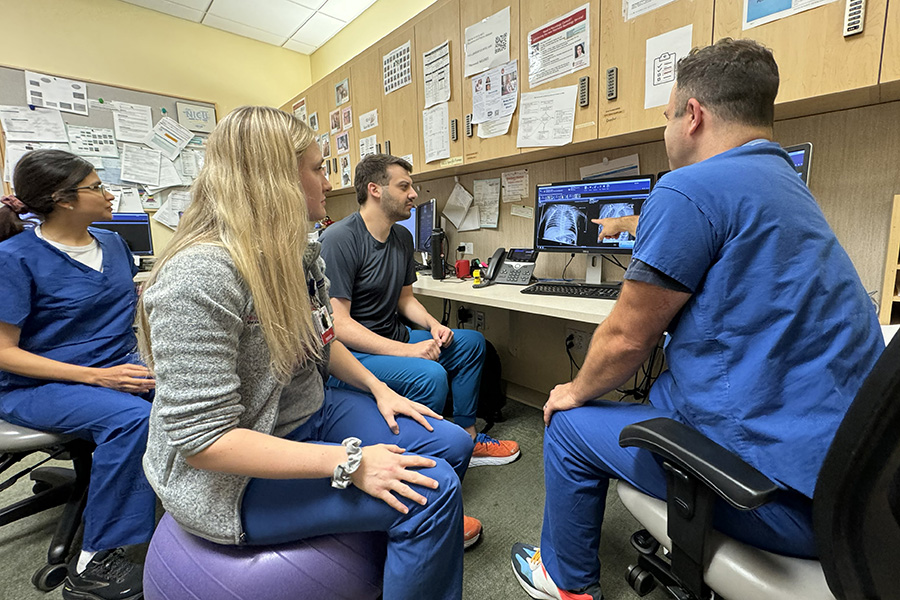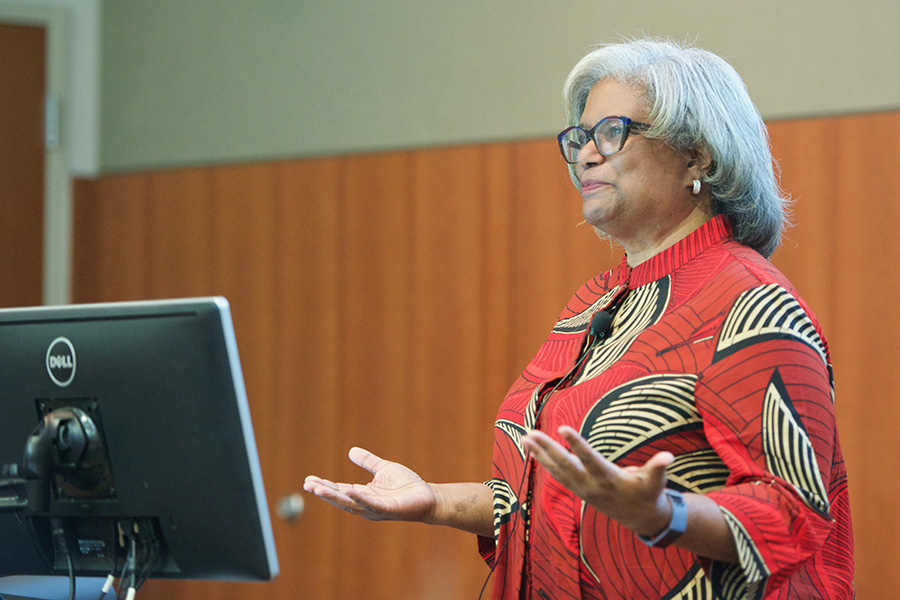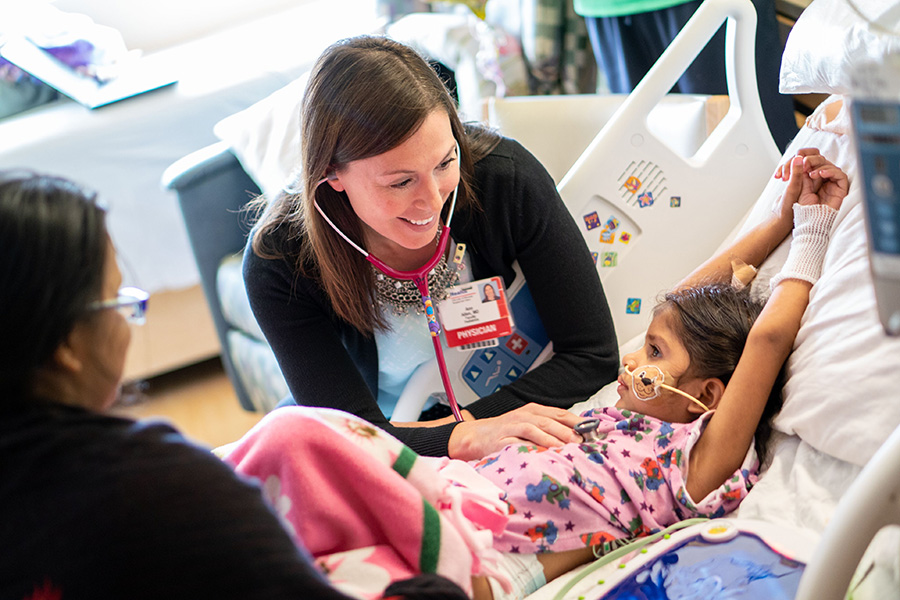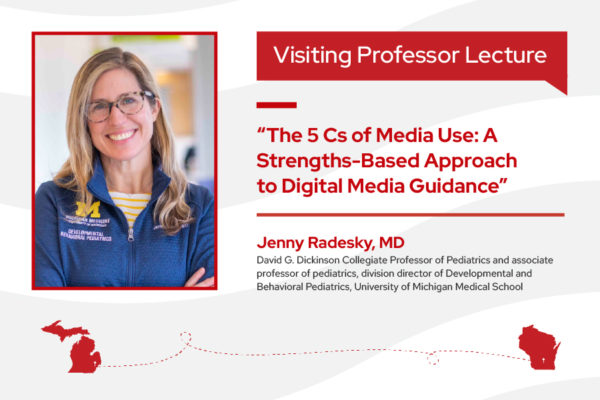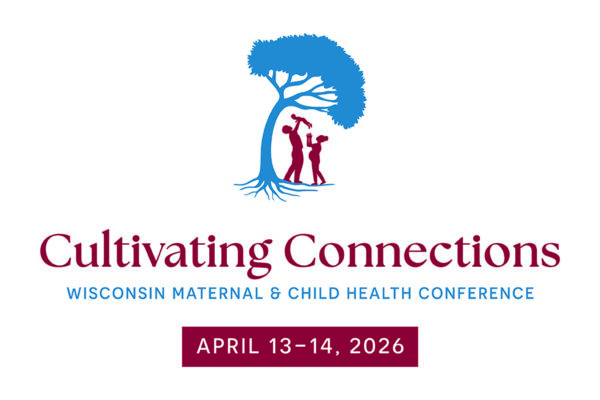The Department of Pediatrics at the University of Wisconsin School of Medicine and Public Health promotes and enhances the health of children through outstanding clinical care, exemplary education of pediatric trainees, performance of cutting-edge research, and vigorous advocacy. It is the academic home to more than 230 faculty members across 16 subspecialty divisions.
Train with us
Formal training programs for medical students, residents, fellows, postgraduate researchers, and faculty provide subspecialty expertise to prepare the next generation of clinicians, scientists, scholars, and leaders in academic pediatrics.
Learn with us
Professional development activities provide valuable learning and CME opportunities to faculty, staff, and trainees as well as pediatricians throughout the region. We host weekly Pediatric Grand Rounds, annual conferences and lectures, and regular workshops.
Work with us
We are dedicated to recruiting new faculty and staff to help us improve the lives of children in Wisconsin and beyond. Internships and student employment opportunities in health care administration and research provide experiences for emerging professionals.
Featured Events and News
Recent News

Department clinicians offer a range of mind-body, osteopathic, and other integrative therapies for pediatric patients
UW–Madison’s long history with integrative health practices began nearly 25 years ago when David Rakel, MD, professor and chair in the Department of Family Medicine and Community Health, founded the Integrative Medicine Program. Initially it …
December 11, 2025
Department of Pediatrics members attend conferences near and far
Conference attendance is vital for clinicians, academic scholars, and scientists because it fosters professional growth, builds networks, and helps keep them at the forefront of medical knowledge and innovation. Members of the Department of Pediatrics …
December 10, 2025
Department of Pediatrics fellow, Therese (Tess) Woodring, selected for Pediatric Scientist Development Program
In a historic first for the department, Therese (Tess) Woodring, MD, was selected for the Pediatric Scientist Development Program (PSDP). She is the first-ever fellow from the Department of Pediatrics at the UW School of …
December 10, 2025
Celebrating Fellowship Match Day 2025
Today, December 3, the University of Wisconsin Department of Pediatrics celebrates Fellowship Match Day and the nine outstanding physicians who will be joining our fellowship programs in July 2026. This day marks an important milestone …
December 3, 2025
Pediatrics faculty share expertise: November 2025
Department of Pediatrics faculty members are experts in child health, parenting, vaccinations, and other related topics. They are frequently sought out by local, state, and national journalists for their insights. Below is a list of …
December 2, 2025
Ariel Kim selected for the APP’s Pediatric Cardiology Pipeline Program Inaugural Cohort
Ariel Kim, MS-4, has been selected for the Pediatric Cardiology Pipeline Program Inaugural Cohort. The cohort, formed by the American Academy of Pediatrics section on cardiology and cardiac surgery (SOCCS), consists of 20 trainees selected …
December 2, 2025
Bernadette Gillick and Ryan McAdams awarded NIH grant to study novel non-invasive brain stimulation intervention in neonates with impaired oral feeding
Bernadette Gillick, PhD, MSPT, PT, professor, Division of Developmental Pediatrics and Rehabilitation Medicine, and Ryan McAdams, MD, professor, Divisions of Neonatology and Newborn Nursery and Global Pediatrics, and their teams were awarded Anderson National Institute …
December 2, 2025
Awni Al-Subu and Bryn Webb elected to Midwest Society for Pediatric Research Council
Two members of the department were elected to the Midwest Society for Pediatric Research (MSPR) Council: Awni Al-Subu, MD, associate professor, Division of Critical Care, and Bryn Webb, MD, associate professor, Division of Genetics and Metabolism. Their …
December 2, 2025- More News...

